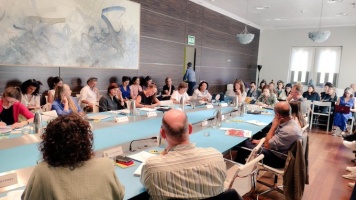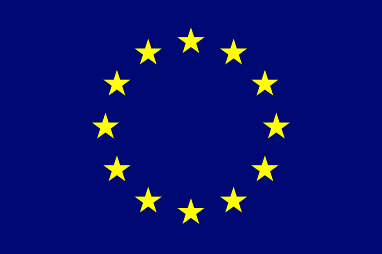“Neglected crises: from commitments to actions”- Round table in Madrid

How to address the funding imbalances and expand the donor base, looking ahead to the European Humanitarian Forum 2024? What is the role of local actors, especially women, in humanitarian responses? How the nexus approach should be used to address neglected, protracted, complex crises? These are some of the key questions that were discussed during the round table “Neglected crises: from commitments to actions”, co-organised by VOICE & La Coordinadora on 25 September in Madrid.
The one-day event, organised during the current Spanish Presidency of the Council of the European Union, highlighted the dire humanitarian situations of several neglected crises and fostered reflections on how these could be meaningfully addressed.
The event welcomed a variety of experts: DG ECHO, the European Parliament, the European External Action Service, the Belgian Ministry of Foreign Affairs, the Spanish Agency for International Development Cooperation (AECID) the Basque Agency for Development Cooperation, FAO, The Institute of Studies on Conflicts and Humanitarian Action (IECAH), a representative of the Feminist Humanitarian Network from Belize, as well as humanitarian aid NGOs like Plan International, Educo - member of the ChildFund Alliance, Acción contra el Hambre and Oxfam International.
Sandra Ferrer, Humanitarian Board Member of La Coordinadora, and Dominic Crowley, VOICE President, opened the round table by shedding light on neglected crises and on the importance of political will to revert the neglected conditions of a crisis. Cristina Gutiérrez Hernández, Director for Humanitarian Affairs at AECID, followed their introductory words outlining the priorities of the Spanish Presidency, which include the triple nexus approach, the gender perspective in humanitarian action, humanitarian diplomacy, and Anticipatory Action.
All the sessions were insightful and fostered reflections for the next European Humanitarian Forum in March 2024. The participants highlighted the crucial need for additional, flexible, and quality funding in humanitarian aid. They emphasized the necessity for a feminist approach and localisation to be integrated into the humanitarian response, alongside diplomatic engagement in the peace component of the nexus and the importance of adequate frameworks and tools for the operationalisation of the nexus.
Following these discussions, the VOICE Secretariat has put together a series of recommendations for the EU and its Members States. The recommendations advocate for a substantial increase in humanitarian budgets. The call extends to fostering investments in anticipatory actions, reducing risks, building resilience, and supporting coexistence among communities. Emphasis is placed on adapting financial frameworks to a nexus approach and using COHAFA as a crisis prevention platform. Supporting INGOs in localisation efforts, promoting gender-sensitive, context-specific programs, and using the EHF as an opportunity for the EU to act as a humanitarian aid sounding board are eventually highlighted as essential recommendations for the EU and its Member States.
Click here to read the full document with the key highlights of the event!

